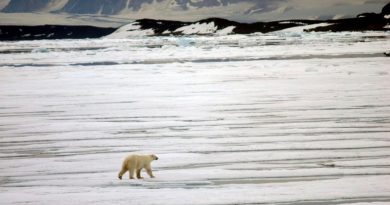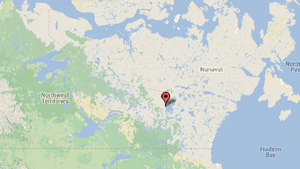Blog: The Arctic Council at a crossroads – Still, and again

The narrative of “the Arctic Council at a crossroads” has been prominent since at least 2008, and probably before.
It has had to choose a path, so to speak, on whether it would move from decision-shaping to decision-making; from science to policy; from regional to global; and lately, from focusing on environmental protection to sustainable development. It’s likely other regional organizations face occasional existential crises, but I doubt as persistently and consistently as the Arctic Council.
I had the privilege of attending a conference this week on “Passing the Torch” from the Canadian to the US Arctic Council Chairmanship, put on by the US Center for Strategic and International Security and Canada’s Centre for International Governance Innovation. It provided a review of the Canadian Chairmanship and a preview of the American one. But it also made clear the Arctic Council is still struggling to agree upon what it does, and who does what.
“Focus”
First off, it is a sad fact that after only 16 months the post mortems are being written on the Canadian Chairmanship, but alas this lame duck syndrome is the consequence of a two-year Chairmanship cycle. I will come back to that point.
While many of the American speakers were full of ambition and optimism for their turn at the helm, a number of seasoned veterans offered doses of realism. Current Canadian Senior Arctic Official (SAO) Susan Harper, battle-worn from the demands of the past two years, gave US Special Representative to the Arctic Admiral Papp and Ambassador David Balton – the latter widely expected to be appointed the next SAO Chair – this solicited advice: “Focus.” For amidst all the urgency, opportunity and imminence in the Arctic, the Arctic Council is being submerged by demands it has neither the organizational capacity nor the funds to meet. It can no longer pretend it can be all things to all people. Priorities must be chosen, and for a longer term than 2 years.
This pressure is currently being felt most intensely by the Permanent Participants, but one senses it is infiltrating all of the Council’s activities. It is time to focus on quality, not quantity, but the two-year Chairmanship cycle does not lend itself particularly well to slow, steady progress. The WWF-Arctic’s Alexander Shestakov asked whether the Arctic Council shouldn’t develop consensus on a long term vision and strategy? Of course he was right. And deep down in the bowels of the Arctic Council website one will find such a vision, approved by the Arctic Ministers in Kiruna less than a year and a half ago. But the habit of big, overbearing Chairmanship agendas seems hard to break.
Aglukkaq’s Ambitions
Canada is a case in point. It sought to use its Chair to refocus the Arctic Council on the ‘other’ pillar of the Council: sustainable development, emphasis on development. Many members came along only grudgingly. The Crown jewel of the Chairmanship is (was) the establishment of an Arctic Economic Council (AEC), which was officially put on the books and so: checkmark. But this Canadian initiative seems to be at serious risk of losing momentum when the Chairmanship turns over. Neither Papp nor Balton even mentioned the AEC. As one person remarked, it’s an open secret that the State Department is unenthused by the whole thing; another offered that “at least” the Americans didn’t block it. Not a ringing endorsement.
Looking back, I think that Canada was damned if it did and damned if it didn’t put forth an ambitious agenda, and choosing between satisfying a domestic audience or an international one, readily chose the former. For what it’s worth, and I expect to Leona Aglukkaq it’s worth a lot, the Nunavut, NWT, Alaska and ICC speakers all praised Canada’s focus on economic development and Aglukkaq specifically. Alaska identified its top Arctic Council priority as “creating jobs”, followed by “suicide prevention”. Climate change did not make the list. The chattering classes in southern institutions and capitals have had a lot to say about the parochial politics and dismissal for the environment in Canada’s agenda; what I heard from the Northerners at the event was validation.
But if Canada was serious on paper about strengthening the Arctic Council’s organizational capacity, it seems as though in practice it undermined it instead. To some, the Canadian Chairmanship felt like a dictatorship. Political observers in Canada may be familiar with the tight-lipped and controlling ways of the Harper PMO (Prime Minister’s Office), but we should still be chagrined that it spilt over into foreign relations. The decision to host the 2015 Ministerial in Iqaluit is a good example – opposed by almost everyone in the Arctic Council due to the logistical horrors of hosting an event so large (Sec. Kerry and FM Lavrov travel with large delegations of dozens of aides) in such a small town, but defiantly imposed by Aglukkaq. Some may applaud her for choosing to please her local, Arctic, constituents instead of diplomats and bureaucrats. A more skillful Chair wouldn’t have chosen.
Maybe a Permanent Secretariat Would Help
The problem of the two-year cycle is nothing new to the Arctic Council. Norway established a temporary secretariat in Tromsø in 2006 during its Chairmanship specifically to address the challenges of continuity, stability and administrative support to the work of the Council, and this was made Permanent in 2013. Everyone provides lip service to the importance of strengthening the Council’s organization. But the draw of the pulpit is strong. The American Arctic Council “torch bearers”, Papp and Balton, hinted at big ticket items at this week’s event, including addressing climate change (!) and assessing the prospects of a Regional Seas Agreement. The mere fact that both Papp and Balton, and in some fashion Fran Ulmer, and in all likelihood a high profile indigenous Alaskan, will all have some as yet undefined role in the US Arctic Council Chairmanship makes me wonder how administratively effective it could possibly be. And brace yourselves – Finland is well on its way in planning its Chairmanship in 2017-19, with Prime Minister Jyrki Katainen having already proposed that Finland organize a Summit of Arctic Heads of Government in 2017.
The main existential question of the Arctic Council remains unsolved: is it a forum or an organization? The Arctic Council began as a forum, to be sure, and its structure and processes reflect that. But it has become clear in the past several years that it needs to become a strong organization if it is to meet the needs and expectations of regional governance. The Arctic Council has been criticized in the past for obsessively focusing on its form at the expense of its function. But the former is still compromising the latter. In order for the Arctic Council to move ahead, Chairs must step back and the Secretariat must step up. There is little evidence that either of these things is occurring.
Related stories from around the North:
Canada: Canada’s Arctic Council leadership gets mixed reviews, Eye on the Arctic
Finland: Ex-President Ahtisaari calls on Finland to join NATO with Sweden, Yle News
Greenland: Greenland urged to work with Arctic Council, CBC News
Iceland: Many questions, but few answers as Arctic conference gets underway in Iceland, Alaska Dispatch
Norway: Permanent Arctic Council Secretariat opens in Tromso, Blog by Mia Bennett
Sweden: Feature Interview: Sweden wraps up Arctic Council, Radio Sweden
Russia: Blog – Russia puts countries on edge in the Arctic, Cryopolitics
United States: How should U.S. lead in the Arctic?, Alaska Public Radio Network



